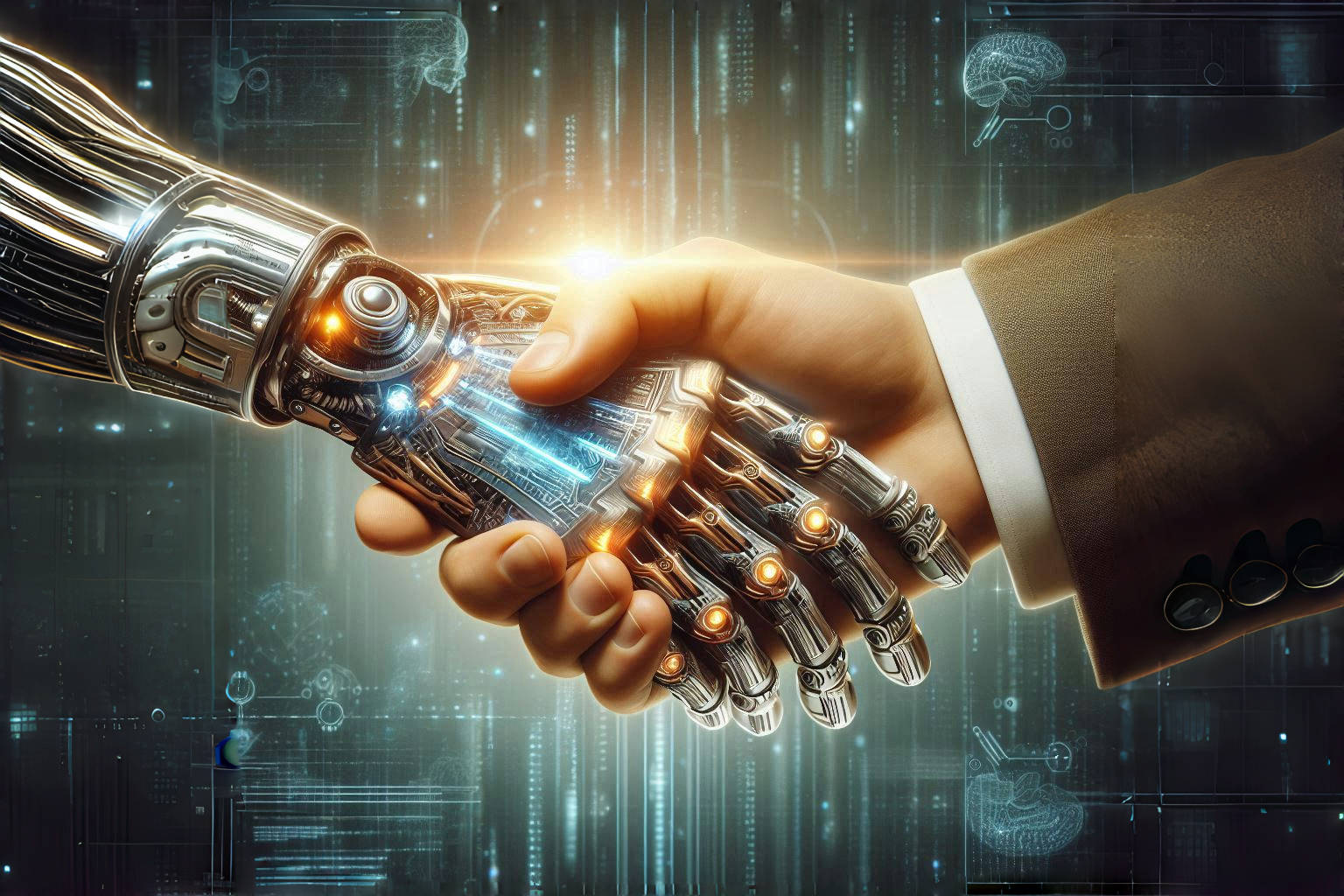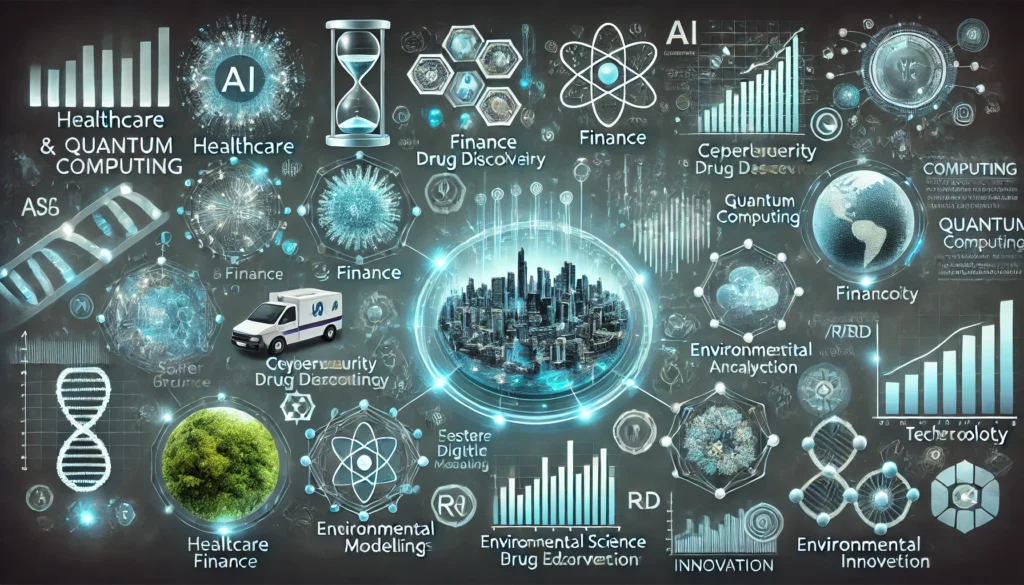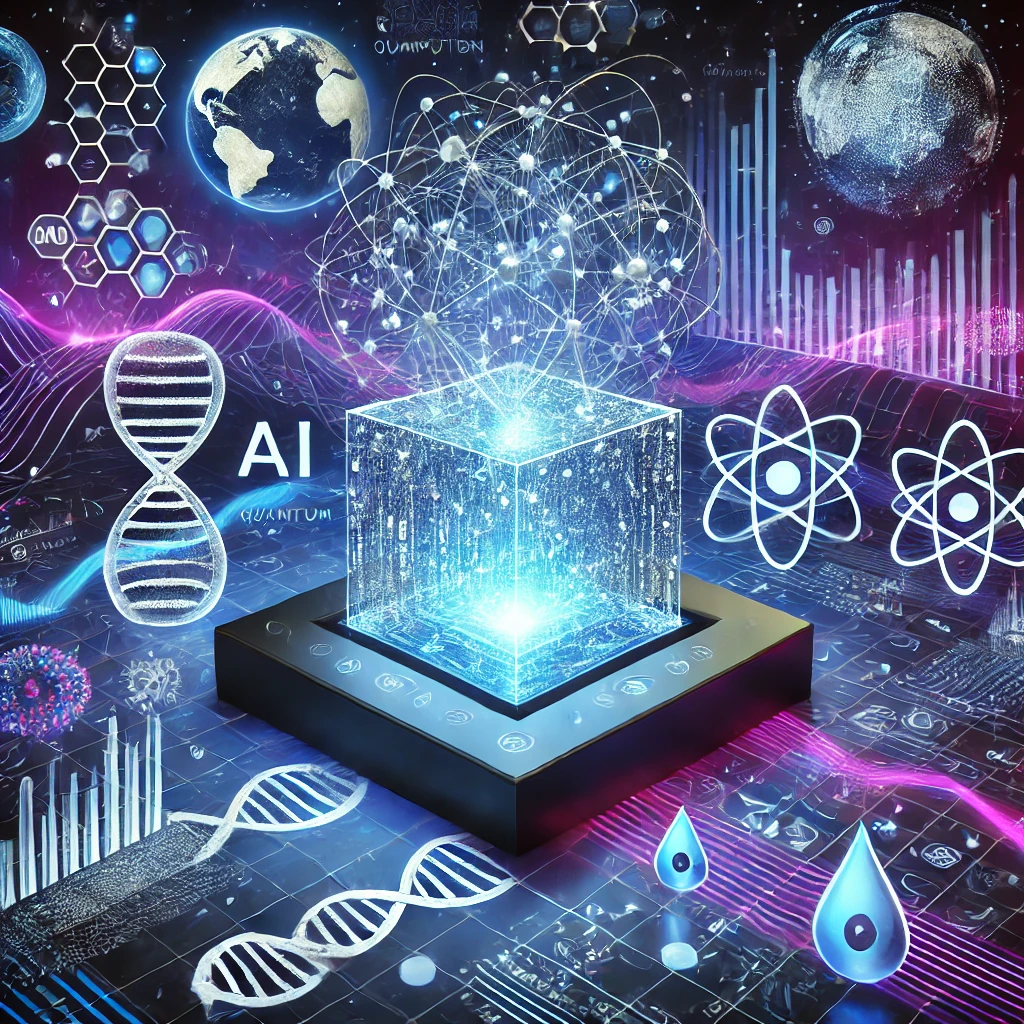Scientists are investigating the possibilities of quantum machine learning, but it’s still uncertain whether the combination of artificial intelligence and quantum computing will lead to practical applications.

Quantum Machine Learning (QML) is the combination of two prominent technologies: Quantum computing and machine learning — think of it as the Avengers of advanced computing. Similar to the Avengers movie all-star team, this tech power couple is sure to get fans buzzing. But as in any good plot a solid plan is essential.
Quantum computers harness the strange behaviours of quantum mechanics, and if they could be built to large enough scales would be able to solve some problems much faster than any classical computer can do. Scientists have long wondered whether machine learning — a flavor of AI that requires detecting patterns and inferring rules from data, so that computers can make decisions in new circumstances — could use those applications.
AI plays a major role in this hypothetical hoard, from high-profile AI systems, such as ChatGPT — which employs machine learning towards conversations that are eerily human through algorithms determining patterns in human language — to the rapid development of quantum computing power, whose capabilities loom ever closer. This leaves the question: Does this mean that combining quantum computing with AI could lead to using it for practical, disruptive applications? This could unite the best each technology has to offer, taking us into new territory in fields like data processing and predictive analytics — to name just two areas.
Booming Interest: AI Meets Quantum Computing
Many tech giants, including Google and IBM, along with innovative start-ups like Rigetti and IonQ, are diving into quantum machine learning, an area that’s also generating strong interest among academic researchers. CERN, the renowned particle physics lab in Switzerland, is actively using machine learning to analyze data from the Large Hadron Collider and is experimenting with quantum computing to potentially enhance these analyses.
“Our goal is to leverage quantum computers to accelerate or refine traditional machine-learning models,” explains Sofia Vallecorsa, a physicist leading CERN’s quantum computing research.
The primary question remains whether quantum machine learning can truly outperform classical models. While theoretical work suggests quantum computers excel at specific tasks, such as molecular simulations or prime factorization, evidence for their advantage in machine learning is still sparse. Some researchers, like Maria Schuld from the quantum firm Xanadu, are cautiously optimistic but acknowledge the limited prospects for near-term applications.
Others are now exploring quantum machine learning algorithms for inherently quantum phenomena, an area with demonstrated potential. According to MIT physicist Aram Harrow, this focus offers the most promising signs of a quantum advantage, potentially paving the way for breakthroughs.
Progress in AI and Quantum Computing: Key Milestones and Developments:
AI and quantum computing are progressing rapidly, with notable advancements in both fields, along with emerging efforts to combine them. As companies and research institutions push the boundaries of what’s possible, here’s a snapshot of key milestones and recent developments shaping this exciting frontier.
| Year | Milestone | Description |
|---|---|---|
| 2019 | Google’s Quantum Supremacy | Google claimed quantum supremacy with its Sycamore processor, which performed a computation faster than a classical supercomputer. This milestone highlighted the potential of quantum computing in specific, complex calculations. |
| 2020 | IBM’s Roadmap for Quantum Processors | IBM announced an ambitious plan to scale quantum processors, aiming to reach 1,000 qubits by 2023. This roadmap signaled a commitment to developing practical quantum systems with real-world applications. |
| 2021 | AI Models Exceeding Human Performance | AI models, such as GPT-3, demonstrated impressive language processing abilities, bringing AI closer to human-like interactions. This growth in AI capability spurred interest in combining it with quantum computing for enhanced processing power. |
| 2022 | Launch of Quantum Machine Learning Initiatives | Research centers like CERN began actively experimenting with quantum machine learning to accelerate particle physics research, showing practical interest in merging AI with quantum computing. |
| 2023 | IBM and Google Expand Quantum AI Research | Leading tech companies increased investments in quantum AI, exploring the potential of quantum-accelerated machine learning. Rigetti and IonQ also made significant strides in building more scalable quantum systems. |
| 2024 | Emerging Quantum AI Applications | Early applications of quantum AI began showing promise in fields like healthcare for drug discovery and cybersecurity. Researchers continue to investigate how quantum computing might improve AI’s efficiency and pattern recognition. |
As these developments unfold, the combination of AI and quantum computing promises new possibilities, from faster problem-solving to advancements in fields where classical computing has limitations.
How Effective Are Quantum Algorithms?
Over the past two decades, researchers have been developing a variety of algorithms to enhance machine learning through AI & quantum computing. One major breakthrough came in 2008, when Harrow, MIT physicists Seth Lloyd and Avinatan Hassidim created a quantum algorithm that solved large sets of linear equations exponentially faster than traditional methods, showcasing the potential of AI & quantum computing to revolutionize fields like machine learning.

However, not all progress in AI & quantum computing has led to expected results. In 2018, Ewin Tang, a computer science student at the University of Texas, developed a classical algorithm that rivaled a quantum machine-learning algorithm intended to speed up recommendation systems, such as those used by Netflix. The quantum algorithm, designed to improve recommendation speed, was found to be outpaced by Tang’s classical algorithm, casting doubt on the ability of AI & quantum computing to deliver significant, practical speed-ups for machine learning.
One of the challenges for AI & quantum computing is that classical data and quantum computations don’t always integrate well. Quantum computing typically involves three steps: initializing the quantum computer by entangling qubits, performing quantum operations on them, and finally reading out the result, often by measuring the state of a qubit. This complexity in mixing quantum operations with classical data highlights the difficulties in achieving the full potential of AI & quantum computing in real-world machine learning applications. Despite the promise, AI & quantum computing still face significant hurdles before they can be effectively combined for practical use.
Quantum Breakthroughs: A Foundational Shift
One intriguing way to addressing the issues of AI & quantum computing is to forgo the requirement to transform classical data by employing quantum machine-learning algorithms on data that’s already quantum in nature. Traditionally, detecting quantum phenomena has entailed capturing data using tools from the classical world, but a new technology, dubbed quantum sensing, is altering that. Quantum sensing allows scientists to measure a system’s quantum features using only quantum equipment. By directly loading these quantum states into a quantum computer’s qubits, AI & quantum computing could work together to find patterns without interacting with classical systems.
This direct quantum-to-quantum approach could offer considerable advantages in machine learning applications, particularly compared to systems that transform quantum measurements into classical data. Hsin-Yuan Huang, a physicist at MIT and researcher at Google, argues, “Our world is inherently quantum-mechanical. If you want a quantum machine that can learn, it may be far more powerful.”
Huang and his team recently demonstrated this theory with an experiment on Google’s Sycamore quantum computer. They employed a piece of its qubits to imitate a specific sort of material, while another part of the processor processed this data with quantum machine learning. The outcome was an exponential boost in speed over existing methods, indicating the potential for AI & quantum computing to transform data analysis and problem-solving.
Comparing Traditional AI and Quantum AI
| Aspect | Traditional AI | Quantum AI |
|---|---|---|
| Processing Speed | Limited by classical computation | Exponentially faster on certain problem types |
| Pattern Recognition | Good for standard data | Potentially better for complex quantum patterns |
| Data Requirements | Uses classical data | Uses quantum data (via quantum sensing) |
| Practical Applications | Broadly useful across industries | Currently limited, expanding into specific areas |
Determining Superconductivity
Gathering and analyzing data entirely within the quantum world might give physicists a way to answer questions that classical measurements can only hint at, says Huang. One example is determining if a material is in a quantum state that makes it a superconductor, allowing it to conduct electricity with nearly zero resistance. With traditional methods, physicists have to test superconductivity indirectly—like observing how a material reacts to magnetic fields.
In particle physics, researchers are also interested in using quantum sensing to handle data from future colliders, like DESY’s LUXE experiment, which will smash electrons and photons together. But according to Jensen, this idea is still at least a decade from reality. There’s also the possibility that distant astronomical observatories could use quantum sensors to collect data and send it over a future “quantum internet” to a central lab for processing on a quantum computer. The hope is that this setup could produce images with unmatched clarity.
If these quantum-sensing applications work as planned, quantum machine learning could play a role in combining and analyzing the data from these experiments, working entirely within the quantum framework.
Whether quantum computing will actually benefit machine learning, though, is something that will only be decided by experimentation. “We can’t expect everything to be proved in the way we do in theoretical computer science,” says Harrow. Aaronson agrees, saying that exploring quantum machine learning is worthwhile, even if it doesn’t immediately lead to efficiency gains. Schuld echoes the sentiment, saying, “We need to pursue this research without the constraint of proving a speed-up—at least for now.”
Projected Impact of AI & Quantum Computing by Sector
| Sector | Short-Term Impact | Long-Term Potential |
|---|---|---|
| Healthcare | AI-assisted drug discovery | Quantum AI in genomics and personalized medicine |
| Finance | Enhanced predictive models | Real-time quantum financial analysis |
| Cybersecurity | Improved threat detection with AI | Quantum-secure encryption systems |
| Environmental Science | More accurate modeling with AI | Quantum-driven climate and ecosystem simulations |
| Technology & R&D | Prototype development | Discovery of new tech solutions via quantum AI |





